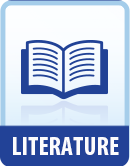|
This section contains 6,740 words (approx. 23 pages at 300 words per page) |

|
SOURCE: Flynn, Philip. “Hallam and Tennyson: the ‘Theodicaea Novissima’ and In Memoriam.” Studies in English Literature 1500-1900 19, no. 4 (autumn 1979): 705-20.
In the following essay, Flynn closely analyzes the influence of Hallam's ontological essay, “Theodicaea Novissima,” on Alfred Tennyson's eulogy to Hallam, In Memoriam.
When Arthur Hallam and Tennyson matriculated at Cambridge in the late 1820s, the University was in a period of theological transition. Orthodox Anglican theology, timid and insular in spirit, looked backward to the eighteenth century. The epistemological attitude of Paley's Natural Theology (1802) prevailed, and his Evidences of Christianity (1794) and Principles of Moral and Political Philosophy (1785) had recently been introduced into the University curriculum.1 But, within the colleges, and particularly at Trinity, new forces were at work. Julius Hare and Connop Thirlwall, both resident fellows, carried German biblical criticism to the Trinity common room, while, among the undergraduate “Apostles,” F. D. Maurice and John Sterling preached...
|
This section contains 6,740 words (approx. 23 pages at 300 words per page) |

|


